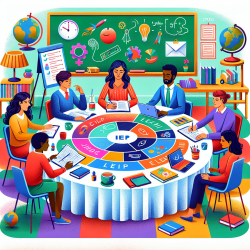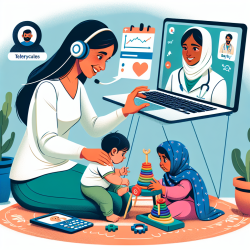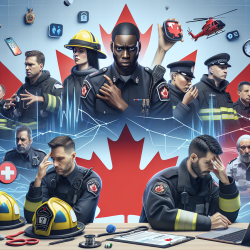Individualized Education Program (IEP) meetings are critical touchpoints in the educational journey of students requiring special services. For Speech Language Pathologists (SLPs) working in schools, these meetings offer an opportunity to not only assess and plan but also to inspire and guide the educational team toward achieving the best outcomes for the students. In this blog, we delve into the essential aspects of mastering IEP meetings, focusing on how SLPs can leverage their expertise and TinyEYE's online therapy services to create effective, personalized plans.
Understanding the Importance of IEP Meetings
IEP meetings are designed to develop a customized education plan tailored to the individual needs of each student. These meetings bring together educators, parents, and specialists to discuss and outline specific goals, accommodations, and services required for the student to succeed academically and socially. As an SLP, your role is crucial in identifying speech and language goals and ensuring that they are integrated seamlessly into the student's overall educational plan.
Preparation is Key
Effective IEP meetings start long before the actual meeting date. Preparation involves gathering comprehensive data on the student's current performance, progress, and needs. Here are some steps to ensure you are well-prepared:
- Review Previous IEPs: Examine past IEPs to understand the student's history and previous goals. This helps in identifying patterns and areas needing further attention.
- Conduct Assessments: Use a variety of assessment tools to evaluate the student's current speech and language abilities. TinyEYE's online therapy platform offers a range of assessments that can be conducted remotely, ensuring flexibility and convenience.
- Collaborate with Teachers and Parents: Gather insights from teachers and parents about the student's performance in different settings. Their observations are invaluable in creating a holistic view of the student's needs.
Setting SMART Goals
One of the main objectives of an IEP meeting is to set goals that are Specific, Measurable, Achievable, Relevant, and Time-bound (SMART). As an SLP, you should aim to develop goals that are clear and attainable, ensuring they address the student's unique challenges. For instance, a SMART goal could be, "The student will improve articulation of /s/ and /z/ sounds in words and sentences with 80% accuracy in 8 out of 10 trials by the end of the semester."
Facilitating Effective Communication
IEP meetings can sometimes become overwhelming for parents and even other team members. As an SLP, you can facilitate effective communication by:
- Using Clear, Jargon-Free Language: Explain your assessments, findings, and goals in a way that is easy for everyone to understand.
- Active Listening: Show empathy and actively listen to the concerns and suggestions of parents and other team members.
- Visual Aids: Utilize charts, graphs, and other visual aids to present data and progress in a more digestible format.
Leveraging Online Therapy Services
TinyEYE's online therapy services provide a unique advantage in IEP planning and implementation. Our platform offers a range of tools and resources that can be used to deliver high-quality, consistent therapy sessions. By incorporating online therapy into the IEP, you can ensure that students receive the support they need, regardless of location or other logistical challenges.
Follow-Up and Continuous Improvement
IEP meetings are not a one-time event but part of an ongoing process of monitoring and adjusting the student's educational plan. Regular follow-ups and progress monitoring are essential to ensure that the goals set during the IEP meeting are being met. Utilize TinyEYE's tracking and reporting features to keep detailed records of the student's progress and make data-driven decisions for future IEPs.
Inspiring the Team
As an SLP, your passion and commitment to the students' success can inspire the entire IEP team. By demonstrating expertise, empathy, and dedication, you can foster a collaborative environment where every team member feels motivated to contribute to the student's growth. Remember, the ultimate goal is to empower the student to reach their full potential, and your role is pivotal in making that happen.
In conclusion, mastering IEP meetings requires thorough preparation, effective communication, and a commitment to continuous improvement. By leveraging TinyEYE's online therapy services, you can enhance the quality and consistency of the support provided to students, ensuring they achieve their speech and language goals. Together, we can make a significant impact on the lives of the students we serve.










